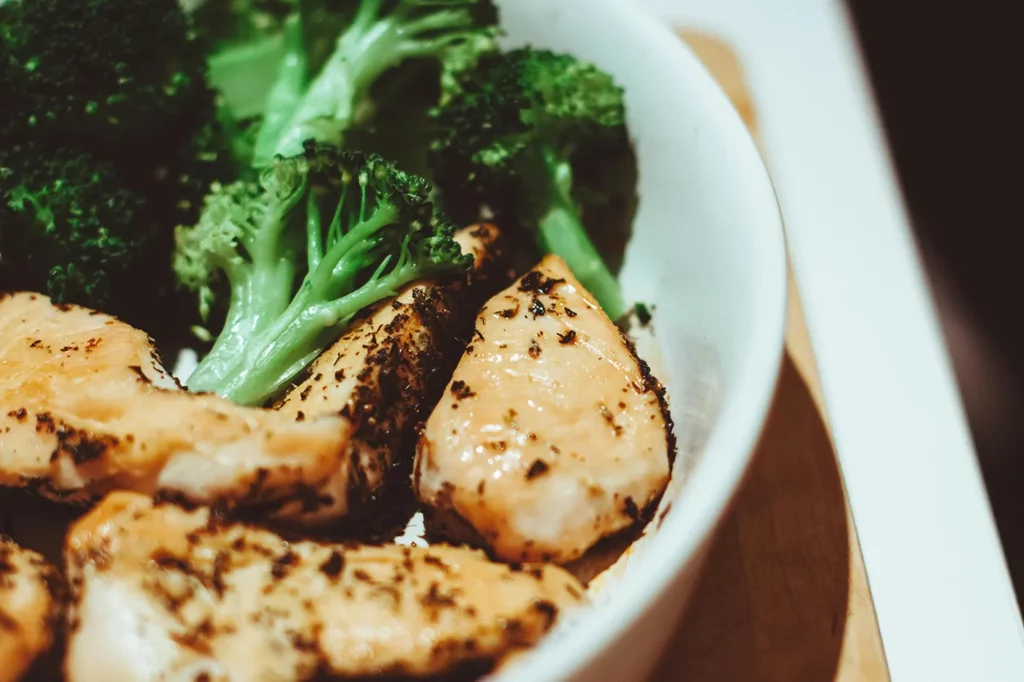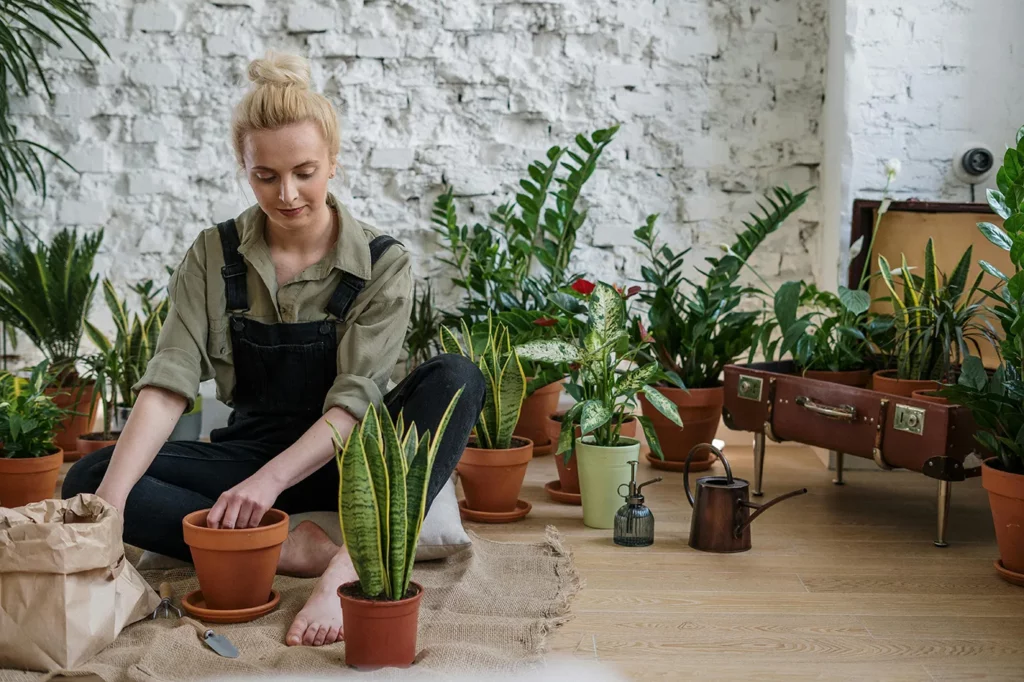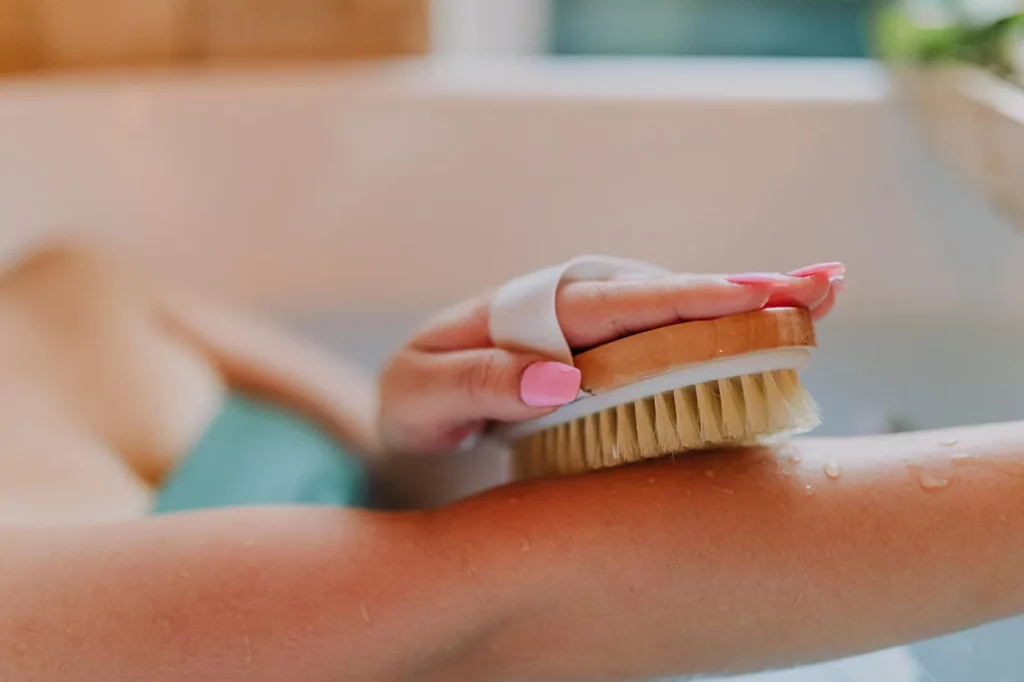This article was medically reviewed by Jennie Stanford, MD, FAAFP, DipABOM
—
The average person is exposed to hundreds of harmful chemicals daily. From household cleaners to personal care products, these toxins can accumulate in your body and negatively impact your health.
If you’re currently experiencing unexplained infertility, one of the first things you might do is look at how you can reduce the toxic load your body is dealing with. In my journey with unexplained infertility, it’s one of the first things I started to look at.
Reducing your toxic load isn’t just about switching to organic foods—it’s about making conscious decisions to avoid these hidden dangers in your everyday life. In this guide, we’ll walk you through simple, actionable steps to help you cut down on toxic exposure and create a cleaner, healthier lifestyle.
Also, this doesn’t happen overnight. But if you have an end goal in mind, you can slowly steer the ship of your life toward that goal, making healthy swaps and updates along the way.
Disclaimer: This blog is not intended for medical advice, and it should not take the place of information from your physician or other healthcare provider. Be sure to consult with your trusted healthcare professional with whom you have an established relationship for medical advice specific to you.
What Is Toxic Load and Why Does It Matter?
Toxic load refers to the accumulation of harmful substances, like chemicals and pollutants, in the body over time. These toxins can come from the air we breathe, the food we eat, the water we drink, and the products we use every day. The fillings in your teeth can even add to your toxic load. Over time, these substances can build up in the body and may contribute to health problems such as fatigue, hormonal imbalances, inflammation, and even chronic diseases.
Common sources of toxins include:
- Air pollutants: Dust, fumes, and emissions.
- Processed foods: Contain preservatives, artificial colors, and flavors.
- Water: May have heavy metals or chemicals.
- Household products: Many cleaners and personal care items contain harsh chemicals.
Minimizing your toxic load means reducing the amount of these harmful substances that enter your body, which can help improve your overall health and well-being.
How to Reduce Toxins in Your Home

The home is often a major source of toxins due to the many cleaning products and materials we use. Fortunately, it’s easy to make some changes that will drastically reduce your toxic load.
- Switch to natural, non-toxic cleaning products
Many store-bought cleaning products are filled with chemicals that can affect your health. Look for plant-based alternatives or make your own cleaners using natural ingredients like vinegar, baking soda, and lemon juice. - Eliminate artificial air fresheners
Air fresheners often contain harmful chemicals that can worsen indoor air quality. Switch to natural options like essential oils or homemade room sprays which contain less harmful ingredients. - Use eco-friendly laundry detergents
Laundry products are some of the biggest culprits when it comes to toxins. Choose non-toxic, fragrance-free detergents that don’t contain harmful chemicals (like phosphates or sulfates) or fragrances that often cause skin irritation. - Reduce plastic use
Many plastics contain harmful chemicals like BPA and phthalates. Replace plastic storage containers with glass or stainless steel alternatives to reduce your exposure.
Non-Toxic Personal Care Products

Personal care products are another major source of toxins. Many shampoos, lotions, and cosmetics contain chemicals that can be harmful to your health over time.
- Watch out for harmful ingredients
Some chemicals to avoid include parabens, sulfates, and synthetic fragrances. These substances can disrupt hormones and cause skin irritation. - Switch to non-toxic skincare and haircare products
Look for products that are labeled as organic, natural, or fragrance-free. There are many brands on the market that prioritize safe, non-toxic ingredients. If you have an intolerance to gluten, be sure to check your makeup and skincare products as potential sources of gluten. - Read labels carefully
Learning to read product labels is key to avoiding toxic ingredients. Ingredients like formaldehyde and artificial dyes should be red flags.
Clean Up Your Diet

Diet plays a crucial role in reducing your toxic load. The more processed, chemical-filled foods you consume, the more toxins your body will have to process.
- Opt for organic foods
Organic produce is grown without synthetic pesticides and fertilizers, making it a cleaner option. Choosing organic also helps reduce your intake of harmful chemicals. Have you heard of the dirty dozen? It’s a list of the 12 foods most likely to be contaminated with pesticides. Avoid these. - Avoid processed foods
Processed foods often contain artificial preservatives, additives, flavors, and colors. Stick to whole, unprocessed foods as much as possible to minimize exposure and to reduce the risk of chronic inflammation. - Limit sugar and processed fats
Processed meats, refined carbohydrates, and added sugars can contribute to ongoing inflammation, which makes it harder for your body to detoxify naturally. - Drink filtered water
Water can contain heavy metals and other contaminants. Investing in a good water filter can help reduce your exposure to these harmful substances.
Detoxify Your Environment

Improving the environment around you can also help reduce your toxic load. From improving air quality to minimizing exposure to hazardous materials, there are several steps you can take.
- Improve air quality
Indoor air quality can often be worse than outdoor air. Using indoor plants and air purifiers can help remove toxins from the air in your home. - Address environmental toxins like mold and VOCs
Mold and volatile organic compounds (VOCs) can be found in many homes, particularly in poorly ventilated areas. Addressing these issues with proper ventilation, mold remediation, and non-toxic building materials can improve air quality significantly. - Dispose of toxic household products safely
Toxic products like old paint, pesticides, and certain cleaning products should be disposed of properly at hazardous waste facilities. Don’t just throw them in the trash! - Limit screen time and EMF exposure
Excessive screen time and exposure to electromagnetic fields (EMFs) can disrupt your sleep and stress levels. Limit your use of electronic devices, especially before bedtime, and consider turning off devices when they’re not in use. - Use non-toxic lawn and garden products
Many conventional lawn and garden products contain harsh chemicals like pesticides, herbicides, and fertilizers that can harm both the environment and your health.
Lifestyle Habits to Support Detoxification

In addition to making changes in your home and diet, certain lifestyle habits can help support your body’s natural detoxification processes.
- Dry brushing and lymphatic drainage
Some studies suggest that dry brushing and lymphatic massage may helps improve drainage from the lymphatic system, which is responsible for removing toxins from the body. It’s a simple practice that can be done a few times a week. Honestly, this is one of the easiest detox activities, and I personally love it. - Sweating through exercise
Sweating is one of the body’s natural ways to detox. Regular exercise can help flush out toxins. - Get plenty of sleep
Your body works to repair and regenerate naturally during sleep. Prioritize getting enough rest to allow your body to perform this crucial function. - Incorporate detoxifying foods
Certain foods, like leafy greens, cruciferous vegetables, and antioxidant-rich berries, can help support your body’s cellular repair and detox pathways through antioxidation. Drinking lemon water and green tea are also great ways to support detoxification.
In Summary
Reducing your toxic load will likely be a gradual process for you, but the impact on your health can be life-changing. By making small, sustainable changes, such as swapping out chemical-filled products and being more mindful of your diet and environment, you can significantly lower your exposure to harmful toxins. Take it one step at a time, and soon you’ll notice the benefits of a cleaner, healthier lifestyle. Ready to start? Begin by replacing just one product today and see how easy it is to make a positive change!
Additional Resources
- Environmental Working Group (EWG)
- The Detox Project
- American Lung Association – What makes indoor air unhealthy?
- National Institutes of Health – Brain may flush out toxins during sleep
- National Institute of Environmental Health Sciences
- Lymphatic Function in Autoimmune Diseases
- Tissue Regeneration: Impact of Sleep on Stem Cell Regenerative Capacity
- The Importance of Antioxidants and Place in Today’s Scientific and Technological Studies


